Namibia has many highlights, and on this 12-day tour we’ll see quite a few of them. Our first stop after departing the capital Windhoek is Etosha National Park — the country’s premiere safari park with an impressive variety of wildlife.
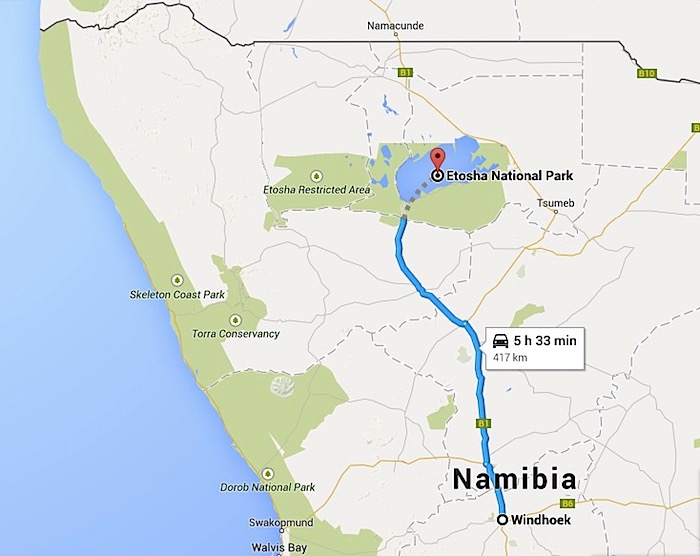
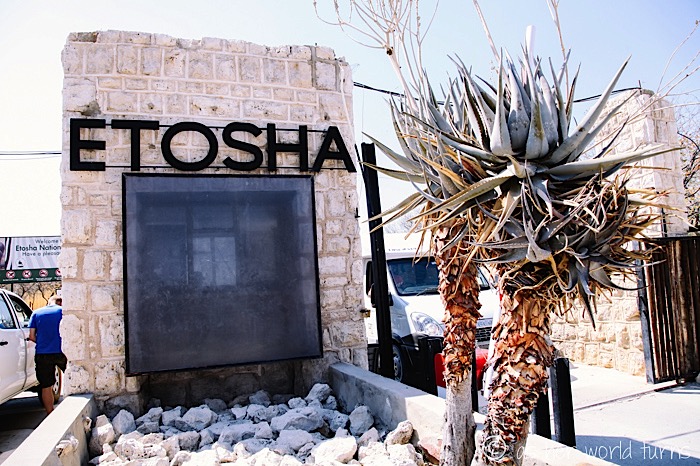
Just outside the entrance, locals sell crafts like these colorful, wood-carved birds.
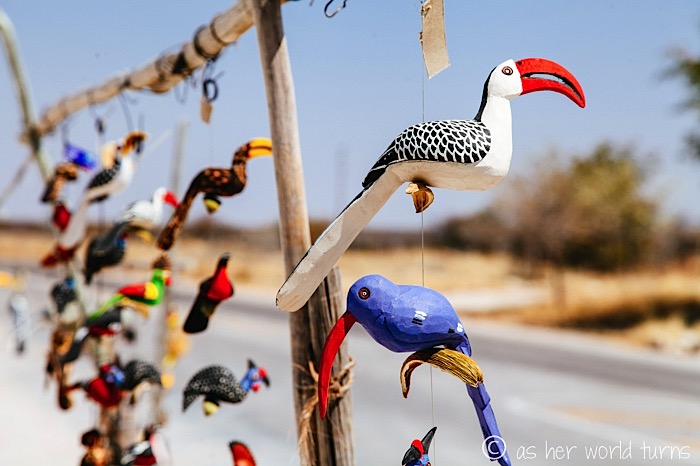
There are also Himba tribespeople waiting to pose for photos. Women in the tribe use otjize paste (mixture of butterfat and ochre pigment) to sculpt their hair into thick, cable-like hair plaits that look like this:
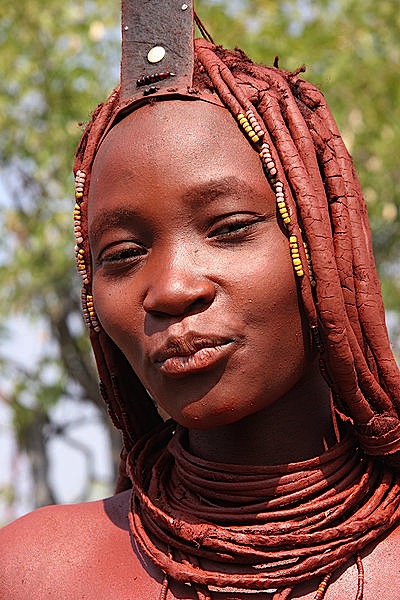
[image via]
They remind me of visiting the Hamar tribes in rural Ethiopia, whose women texture their hair in similar ways.
We have a short break at the main lodge area (our campsite is within walking distance) so our group climbs this lookout tower for sweeping views of the park.
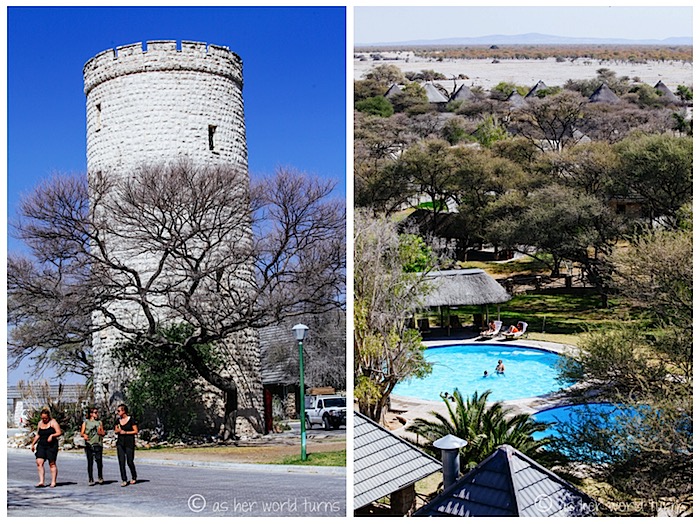
Since we’re staying at the campsite, we have access to the resort swimming pool… doesn’t it look perfectly refreshing?
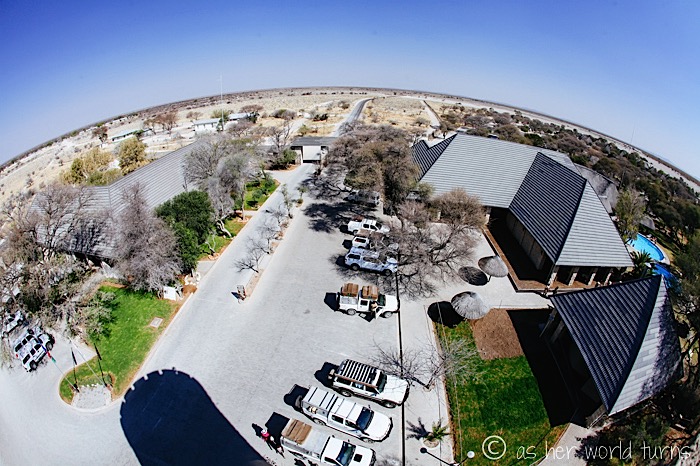
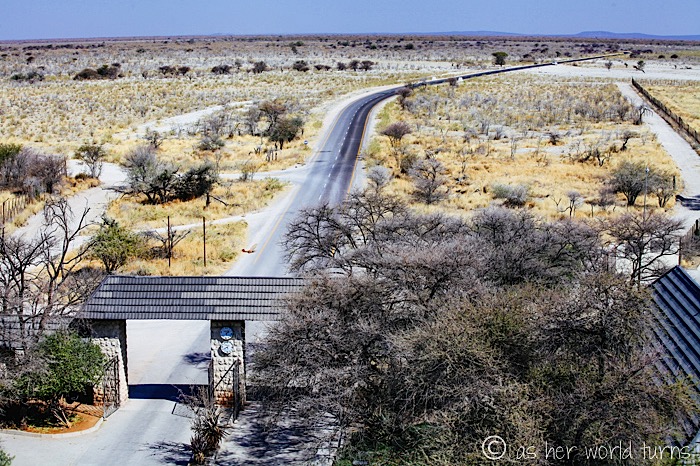
After checking in at the campsite we get back into our overland truck. Rather than pay for an official game drive through the park in smaller vehicles, our guides Riaan & Juliana will simply take us in the truck to all of the watering holes around this area. They drive slowly, pausing whenever we spot wildlife. Riaan shares facts about each of the species we encounter.
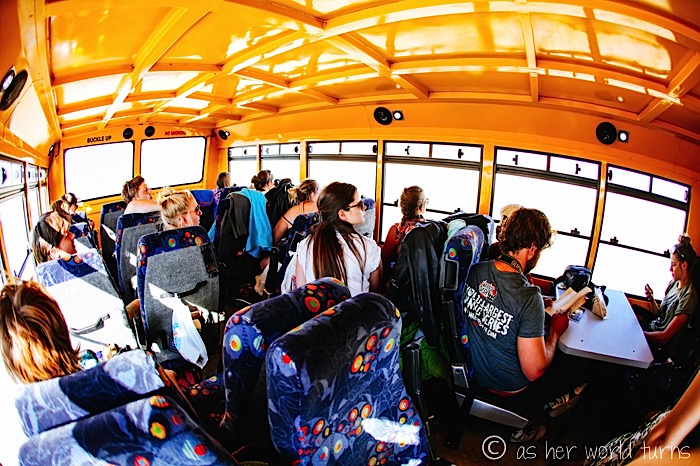
As the photo below demonstrates, the land here is flat and endless. But there are small bushes all over and you never know where a lion or leopard might be hiding…
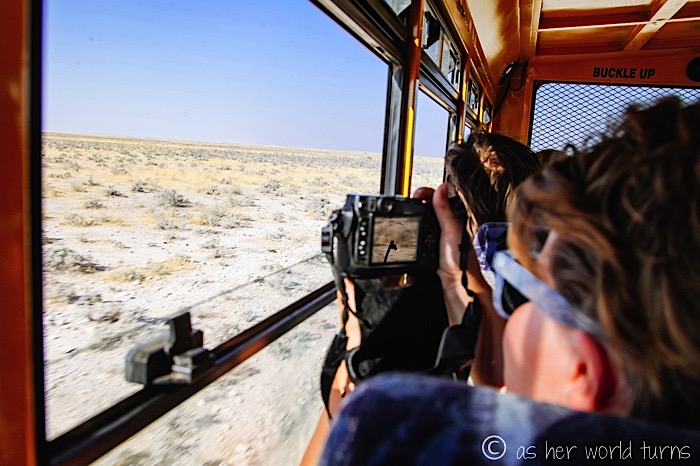
One unique creature that keeps popping up throughout Etosha is the gemsbok.
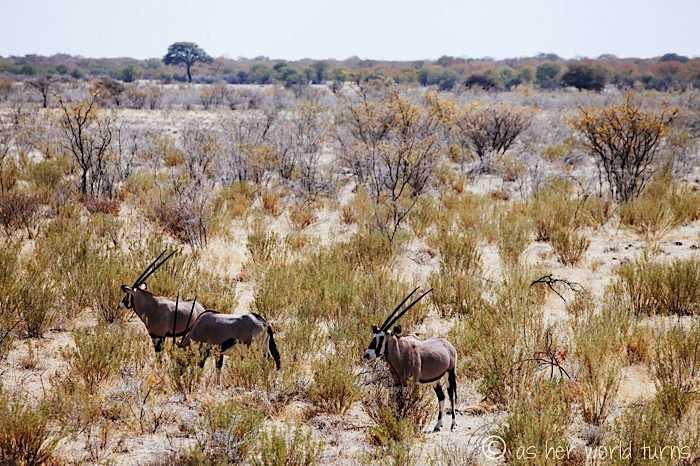
Gemsbok are distinguished by long, straight horns that average 33 inches in length (nearly three feet!) and a black-and-white pattern masking the face. There are around 373,000 in Namibia alone.
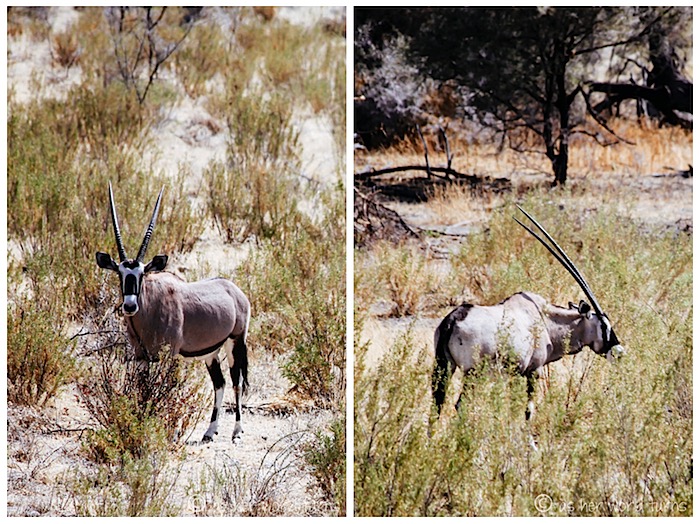
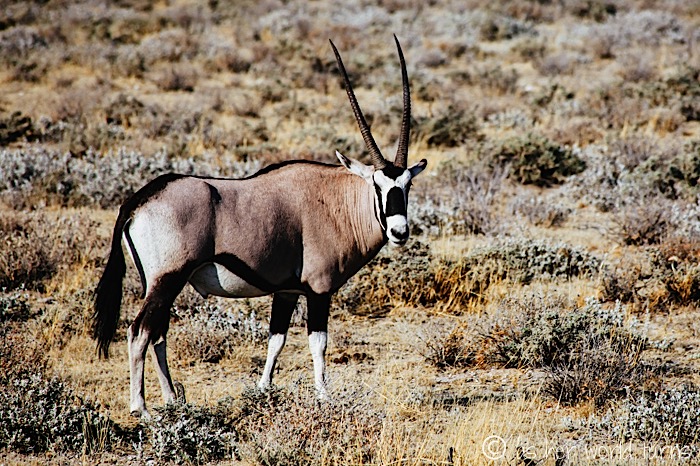
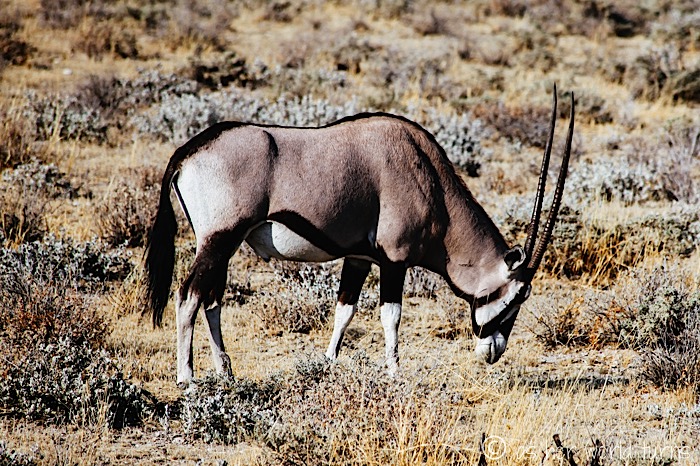
And here is a springbok:
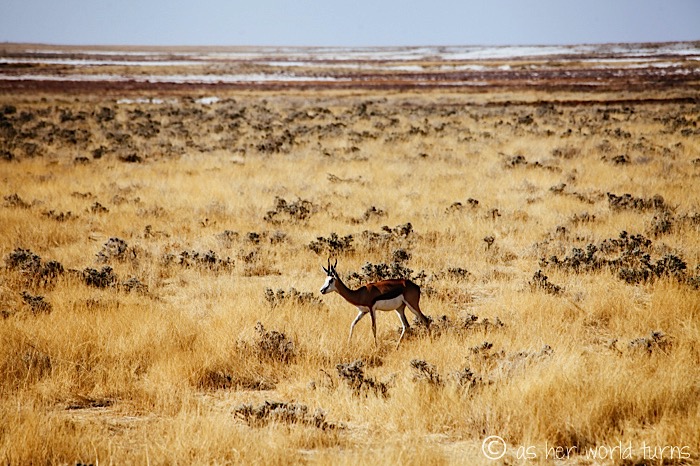
And another springbok at a tiny watering hole:
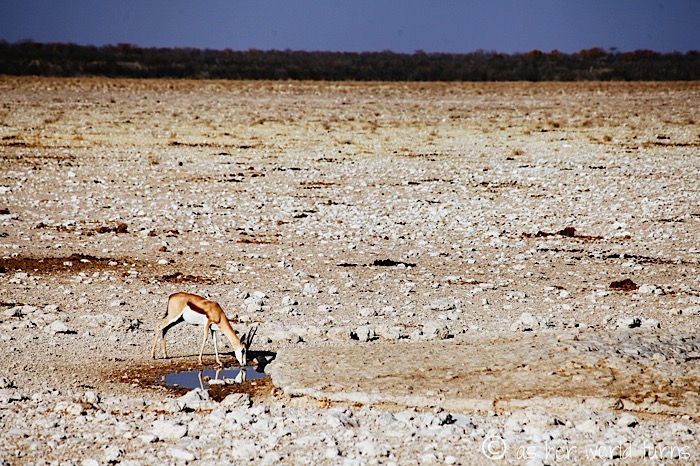
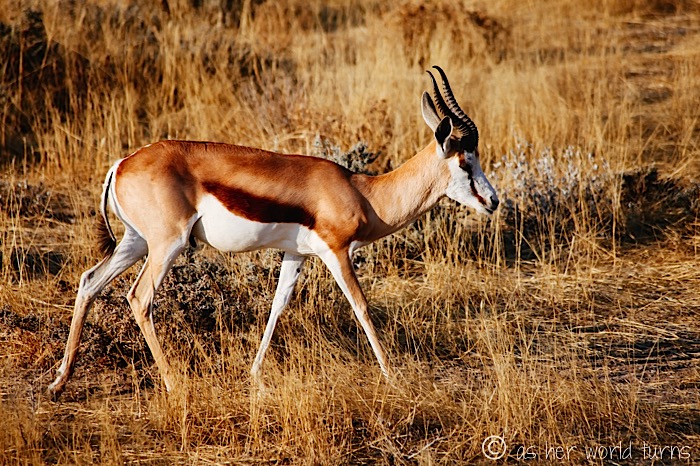

Can you spot the lion in this next photo? Someone on our truck has really sharp eyes.
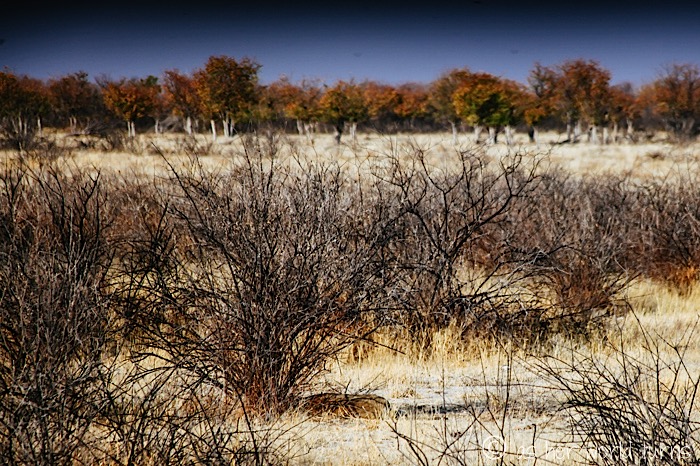
Vultures can only mean one thing… something nearby has recently died. There’s even a jackal near the left of the pack.
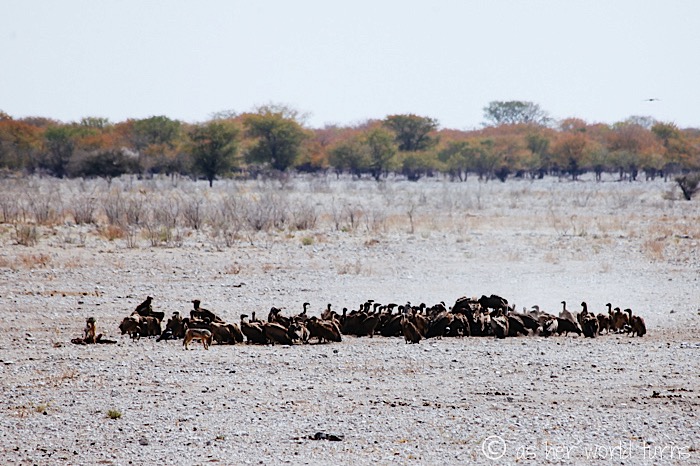
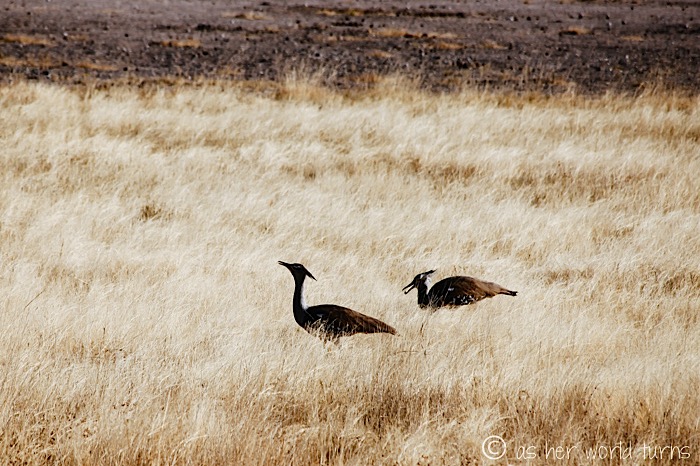
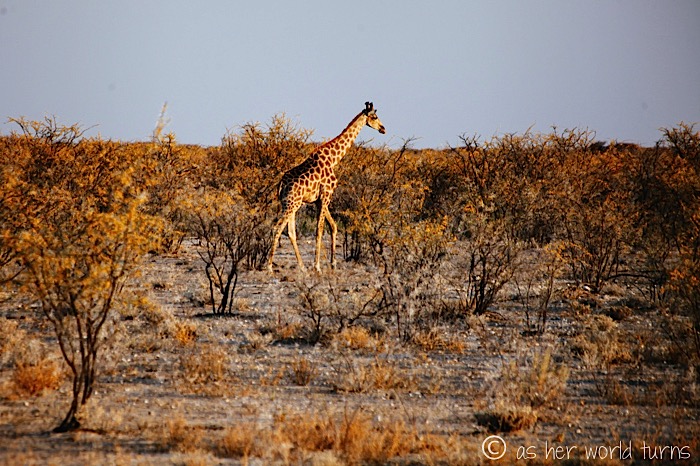
A male elephant hangs out at this watering hole, taking long sips of water with his trunk.
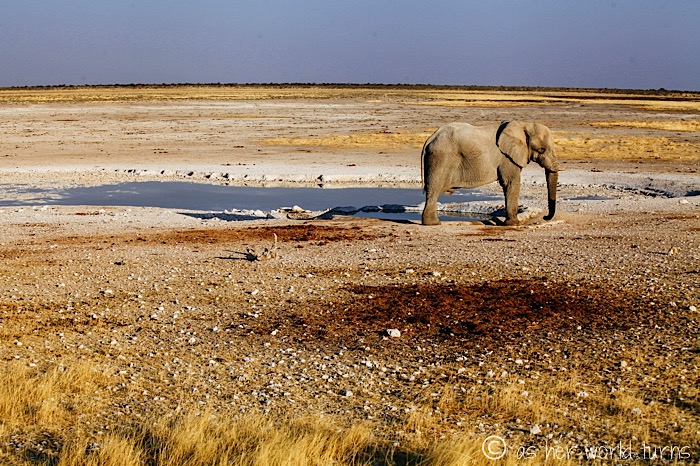
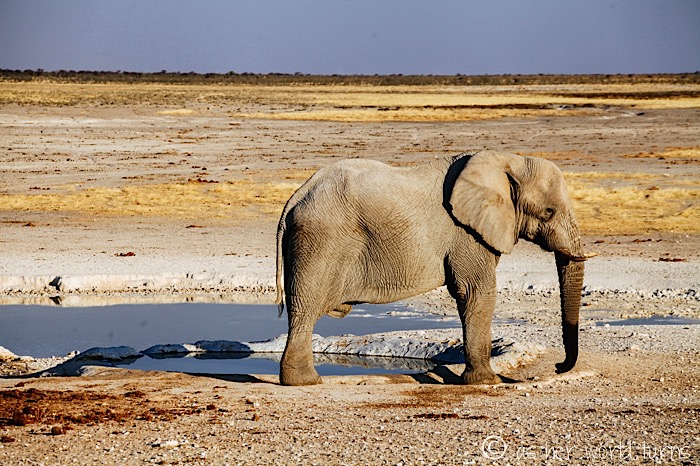
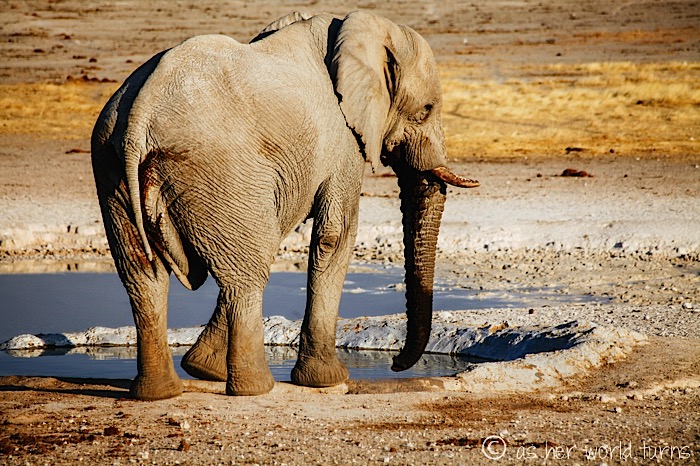
Once his thirst is sated, he wades into the water for a mud bath. How smart of him to drink from the water before bathing in it!
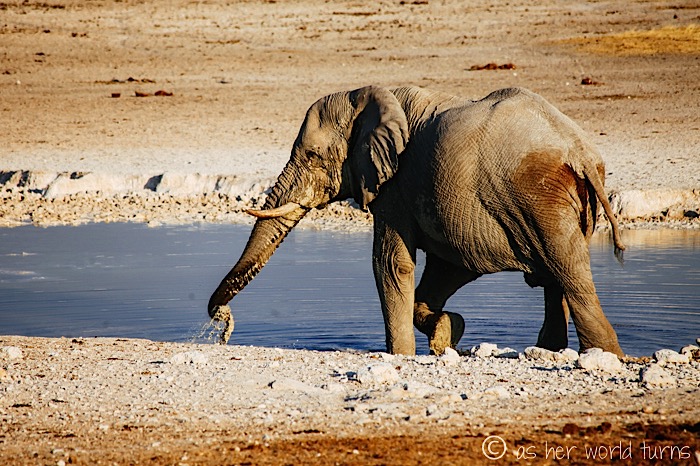
Using his trunk, he starts slinging muddy water onto his body.
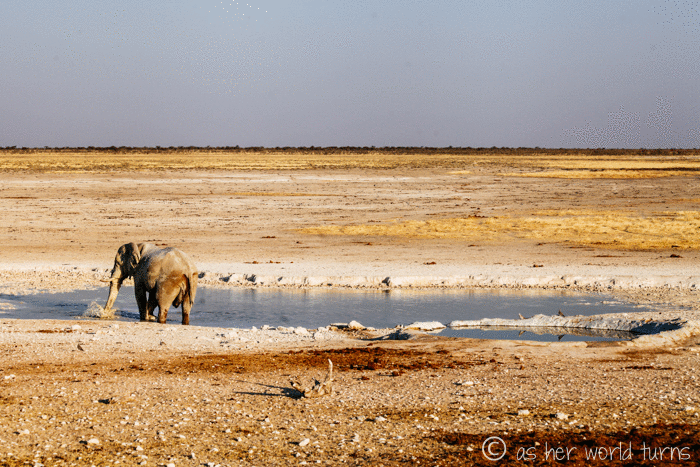 He moves in deeper, splashing until he’s almost entirely covered with mud.
He moves in deeper, splashing until he’s almost entirely covered with mud.
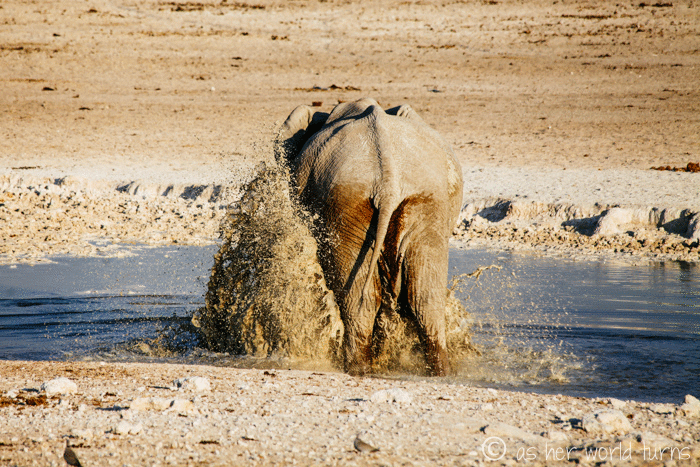 Now fully clean (or is that thoroughly dirty?), the elephant stands in proud accomplishment.
Now fully clean (or is that thoroughly dirty?), the elephant stands in proud accomplishment.
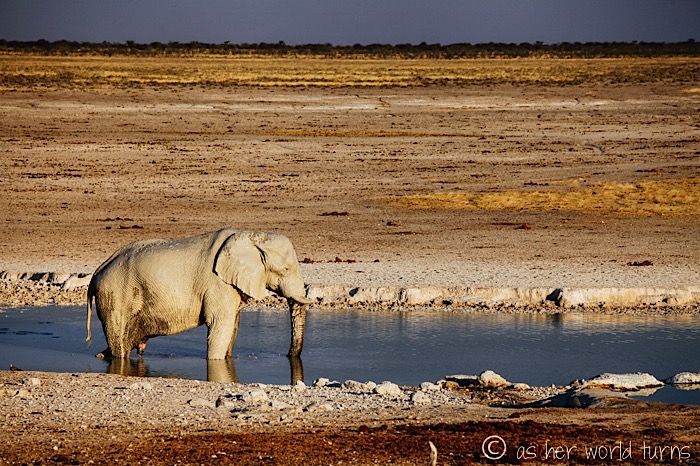
See how his trunk is a different color than the rest of his body? He used it to sling mud, but the trunk itself didn’t get covered. What a stark contrast between the white mud and dark trunk.
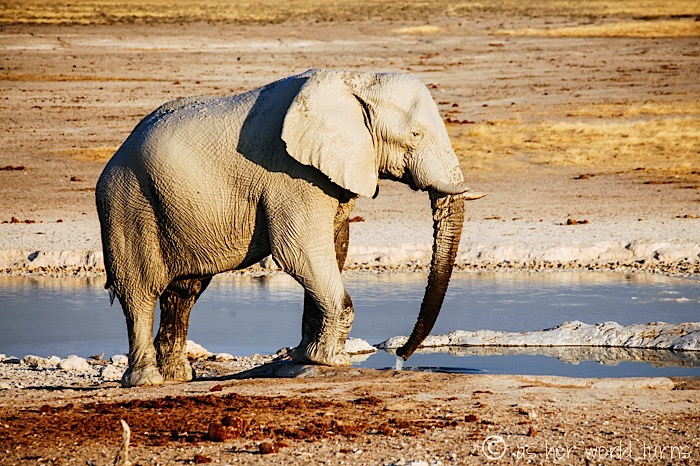
By sunset all vehicles are required to be inside the gate. This is for everyone’s protection (humans and animals) as driving accidents are far more likely to occur after dusk than before it.
We return back up to the lookout tower just in time for sunset.
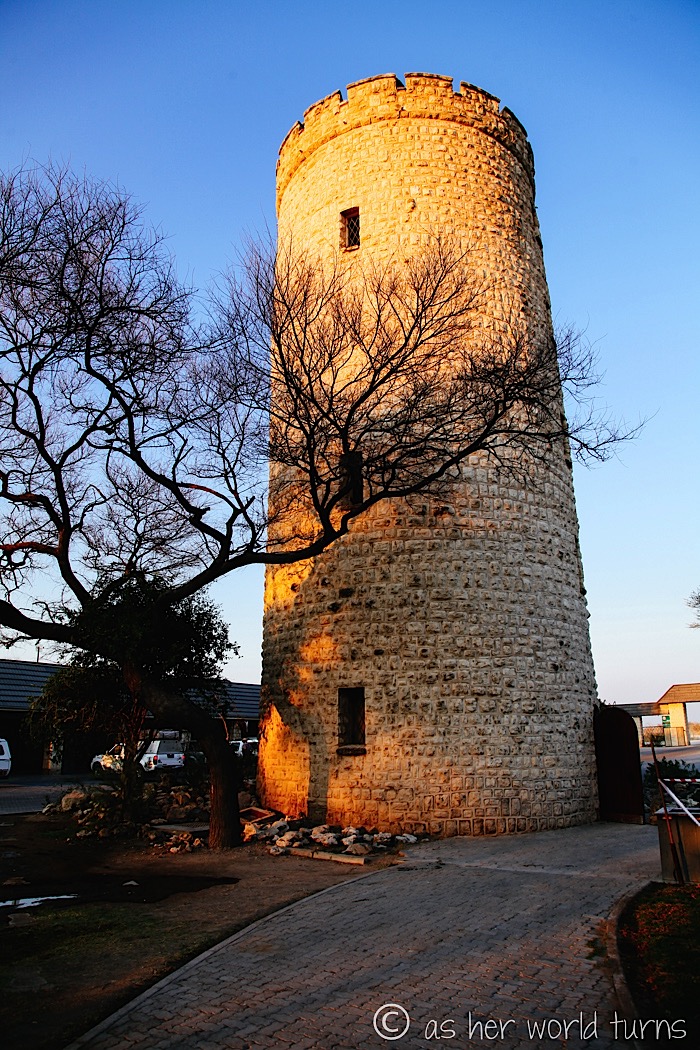
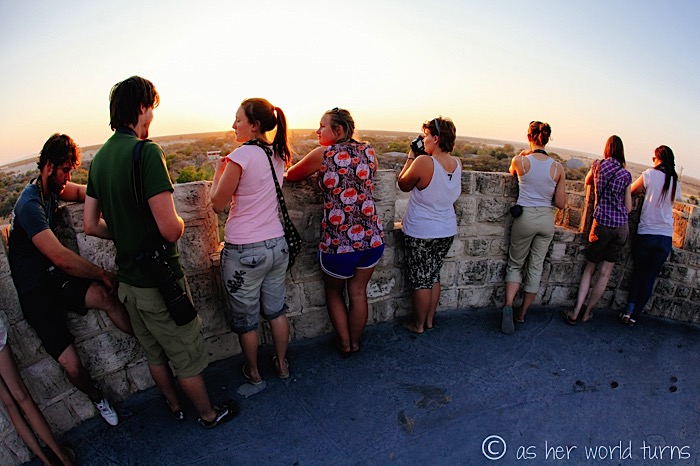
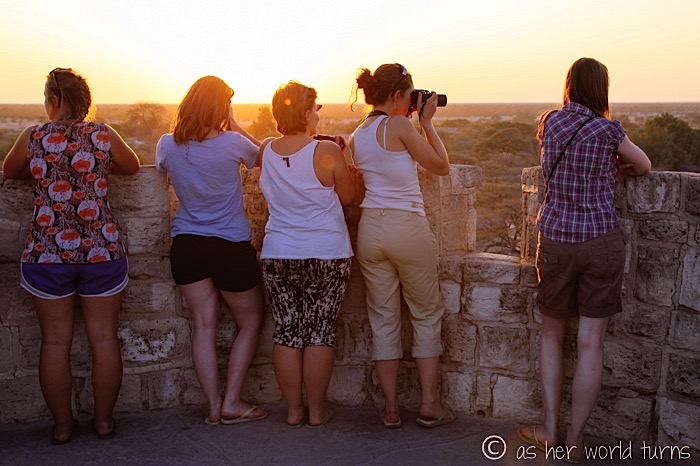
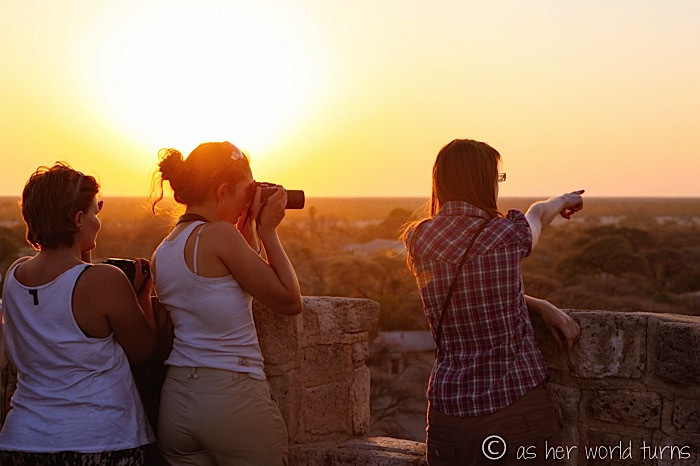
Can you spot that solo giraffe way off in the distance?
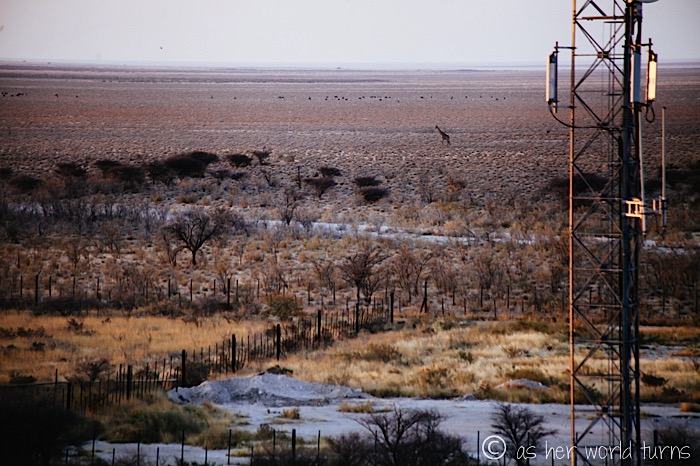
How about that elephant? I wonder if it’s the same one we saw at the water hole earlier.
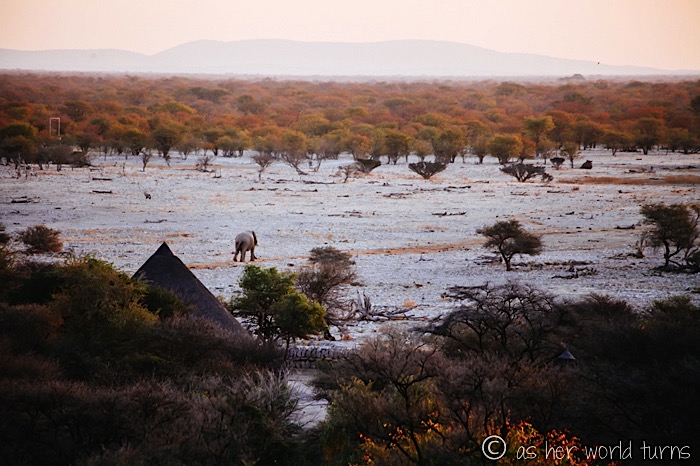
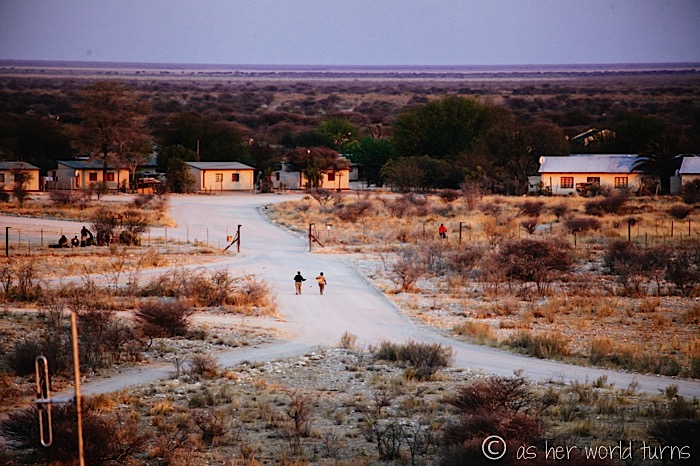
The sunset colors are intense. Love how these shots turned out.
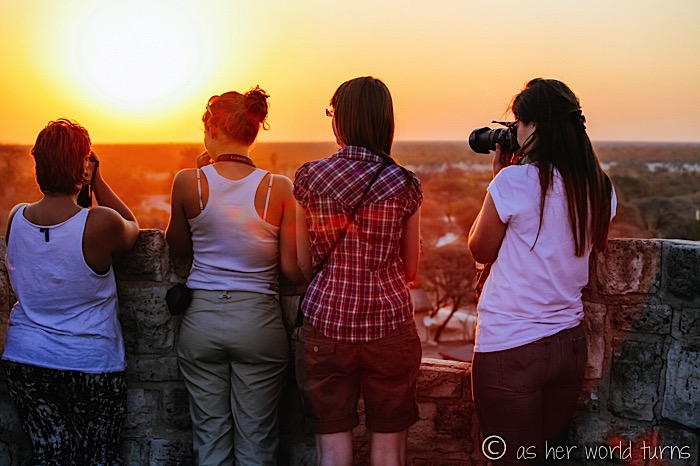
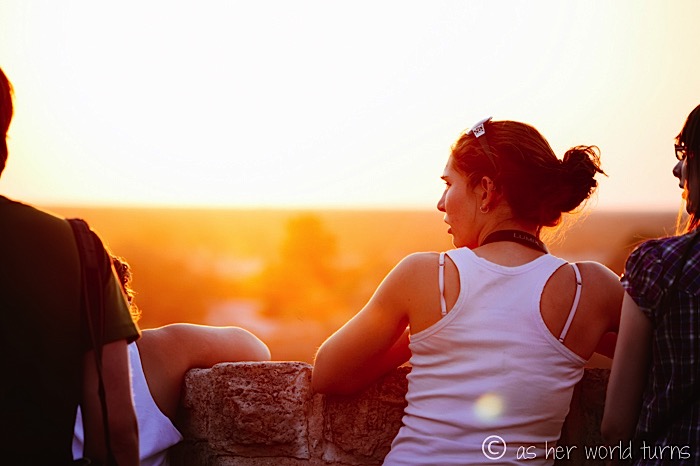
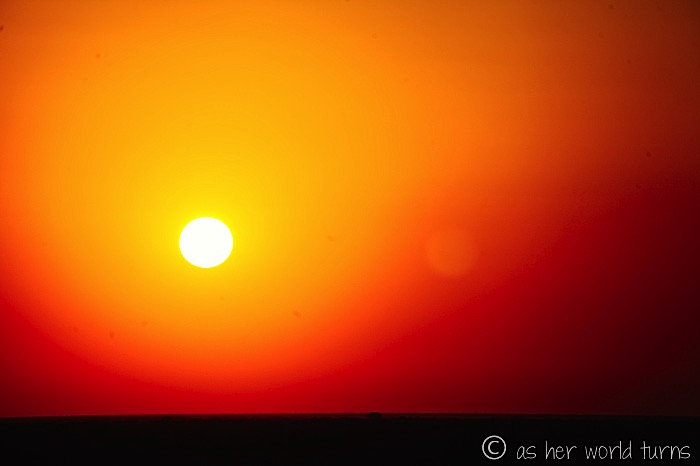
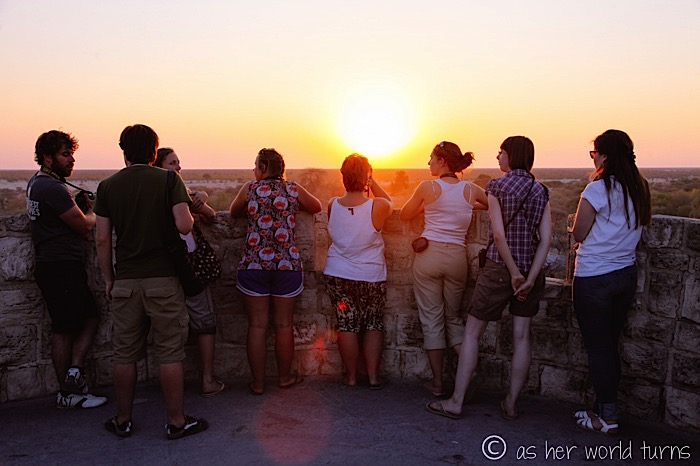

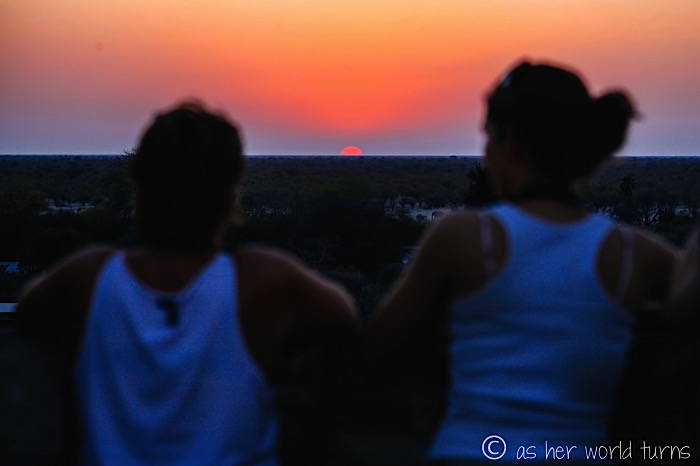
As soon as the sun dips below the horizon our group heads over to another watering hole near our campsite. This one deserves an entire post of its own.
I’m taking tomorrow off for Good Friday but I’ll be back Monday with epic wildlife photos (not an overstatement) from the main watering hole in Etosha National Park. Happy long weekend!
I visited Namibia on a 12-day tour from Windhoek to Cape Town with Acacia Africa. They discounted my tour in exchange for blogging and photography; opinions are my own.

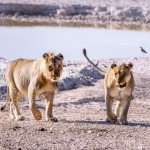
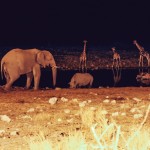
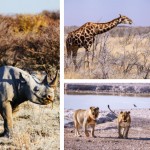
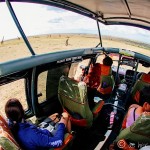
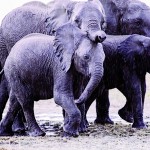

That’s a great place! still, on my list to visit
And very nice pictures of elephants!
Thank you! I hope you get there, it’s a very special area!
The photos identified as a “juvenile gemsbok” are actually a different species entirely: springbok. See: https://en.wikipedia.org/wiki/Springbok
See: https://en.wikipedia.org/wiki/Springbok
Thank you so much, Kev! I really appreciate that info. I just updated the post to identify that species as a springbok!